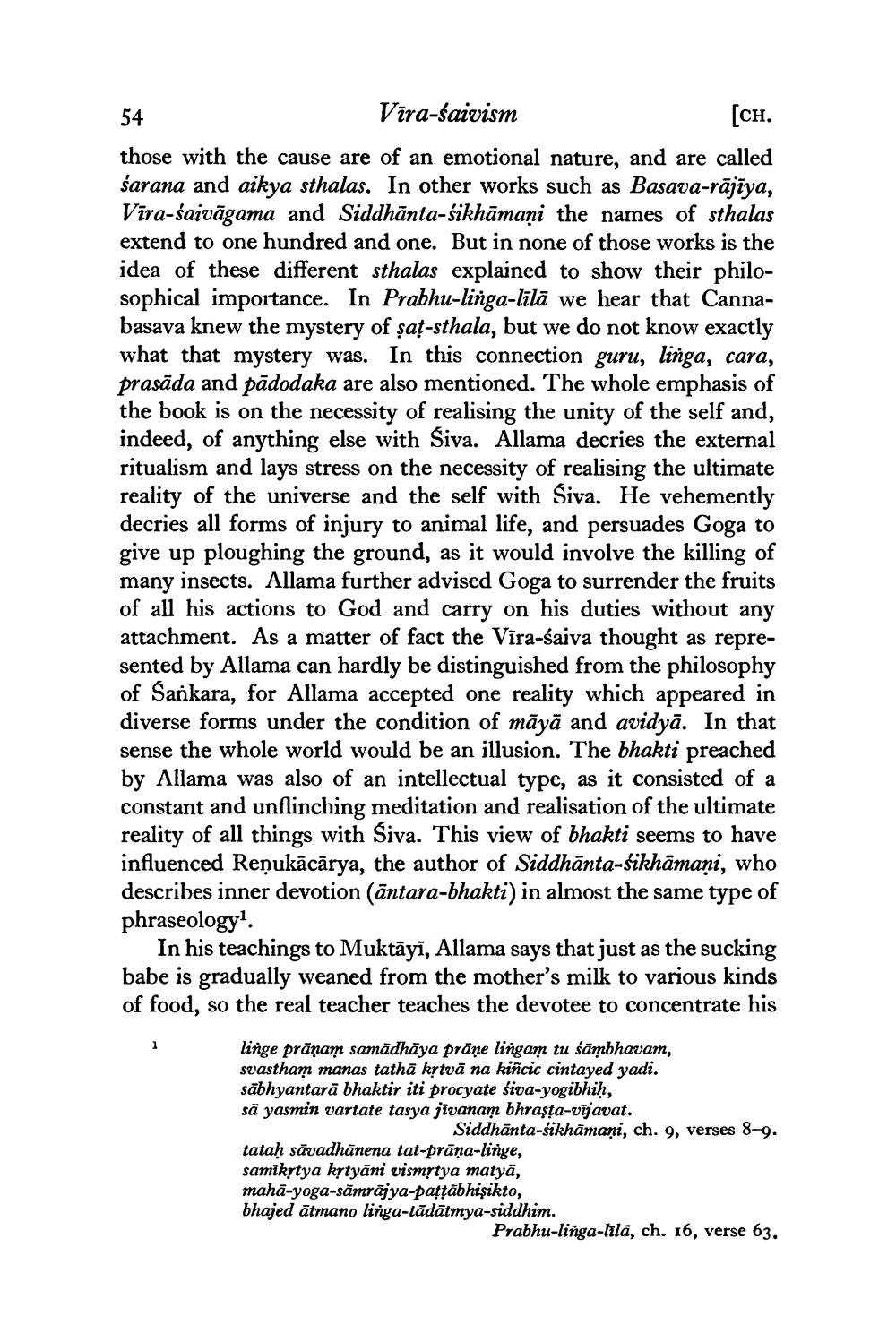________________
54
Vīra-śaivism
[CH. those with the cause are of an emotional nature, and are called sarana and aikya sthalas. In other works such as Basava-rājīya, Vira-śaivāgama and Siddhānta-śikhāmaņi the names of sthalas extend to one hundred and one. But in none of those works is the idea of these different sthalas explained to show their philosophical importance. In Prabhu-linga-līlā we hear that Cannabasava knew the mystery of șaț-sthala, but we do not know exactly what that mystery was. In this connection guru, linga, cara, prasāda and pādodaka are also mentioned. The whole emphasis of the book is on the necessity of realising the unity of the self and, indeed, of anything else with Siva. Allama decries the external ritualism and lays stress on the necessity of realising the ultimate reality of the universe and the self with Siva. He vehemently decries all forms of injury to animal life, and persuades Goga to give up ploughing the ground, as it would involve the killing of many insects. Allama further advised Goga to surrender the fruits of all his actions to God and carry on his duties without any attachment. As a matter of fact the Vira-saiva thought as represented by Allama can hardly be distinguished from the philosophy of Sankara, for Allama accepted one reality which appeared in diverse forms under the condition of māyā and avidyā. In that sense the whole world would be an illusion. The bhakti preached by Allama was also of an intellectual type, as it consisted of a constant and unflinching meditation and realisation of the ultimate reality of all things with Siva. This view of bhakti seems to have influenced Reņukācārya, the author of Siddhānta-śikhāmaņi, who describes inner devotion (āntara-bhakti) in almost the same type of phraseology
In his teachings to Muktāyī, Allama says that just as the sucking babe is gradually weaned from the mother's milk to various kinds of food, so the real teacher teaches the devotee to concentrate his
linge prānam samādhāya prāne lingam tu śāmbhavam, svastham manas tathā krtvā na kiñcic cintayed yadi. sābhyantarā bhaktir iti procyate siva-yogibhiḥ, sā yasmin vartate tasya jīvanam bhraşta-vījavat.
Siddhānta-sikhāmani, ch. 9, verses 8-9. tataḥ sāvadhānena tat-prāņa-linge, samikytya kytyāni vismrtya matyā, mahā-yoga-sāmrājya-pattābhişikto, bhajed ātmano linga-tādātmya-siddhim.
Prabhu-linga-lilā, ch. 16, verse 63.




